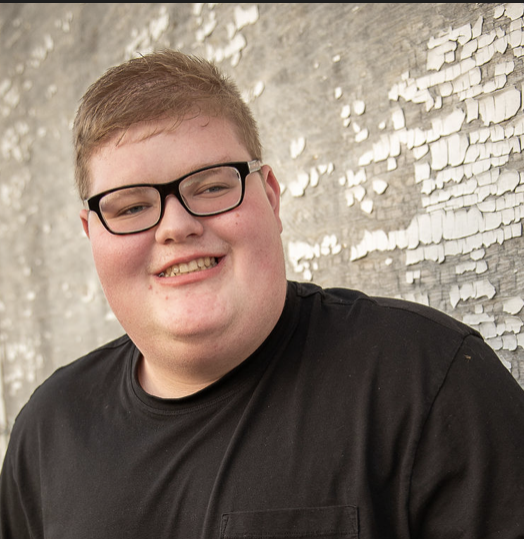For as long as I can remember, the Internet’s technology and landscape have impacted my bubble in society. Before I knew about the Internet, I remember watching cartoons on the old box television. There were always commercials trying to coax the viewer to check out the product’s website between shows. Although, since I was young and naive, these thoughts never faced me as a number one priority on my family’s home computer. Instead, I would play video games like Club Penguin (rest in peace to that legendary game), where you could participate in conversations with people across the globe. When I wasn’t doing that, I was actively watching YouTube videos on all that was wacky in the early 2010s, and it was the same evolved climate as in Michael Wesch’s video. I often found uncut gems of videos on the platform, and I will never be the same because they started my obsession with YouTube.

Photo by on Pexels
It is crazy how webcams have transformed the world, giving individuals newfound purpose and confidence to participate online from their homes. Like millions of others, Gary Brolsma and his Numa Numa video were among the first things I saw on the platform. I recommend watching his 2023 remake of the viral video because of how transformative and nostalgic it is on today’s internet.
The original video was indeed the first trend and led the way for memes and so-called 15 minutes of fame on TikTok, like Saturday Night Live’s Domingo skit-music parody. As such, our thoughts on social media have a blinking sensation that stays in the back of the internet’s memory. So, be careful about what you post because some participants might keep track of your online activity. This class would not exist without the growth in exploring different sites, including the reach of Canva, recipe websites, Discord, and creations on previously discussed platforms (Youtubers and TikTokers). Even commenting on classmate’s posts and interacting with unique expressions of self was a vision of the future in a sci-fi film. Showing that everything around us is a learning journey and that we are only documenting the bare bones of tasks in life for these four months.
This could and should apply to classroom education. Brolsma and Wesch got people to think outside the box by exploring new parts of themselves that were not present outside the digital web. A culture of participation would promote ways for students to collaborate in creativity and problem-solving for a better tomorrow with diverse worldviews in exposure to communities of people. Start with small steps like unique engagements by shaking up the typical written assignments for expressive projects promoting diverse ideas. Anything is possible if you believe in yourself and strive for greatness! Thus, educators should focus more on tools that facilitate learning instead of hindering them from hating school, like virtual field trips, Prodigy, fun presentations, use of audiobooks for English, and GarageBand in Arts Ed music units to amp up engagement. How do we create classrooms guiding technology so students don’t fear missing out on learning with friends in the same regard as social media?
Another possibility is balancing our K-12 education system to promote media literacy. In one of my grade 12 ELA classes, the teacher showed us ways to decipher fake news and find credible sources that touched on our own safety in society. To a similar extent, it should be promoted at each grade level in various subjects, most notably Health and English, because they deal with the discovery of self. Schools should focus on the current rights and wrongs on the Internet by following Katia’s policy planner for Digital Citizenship Education in Sask Schools. I don’t think teachers are aware of this document, and it should be required reading to help students with daunting participation online because the curriculum does not address this issue. Figuring out ways to install positive and actual strategies in combating fake slang (skibbity) and creators infiltrating real life. It is the new Hollywood-promoting scandals, pranks, video games, and other lies glued to our screens. Likewise, the welcoming and participatory space in 2008 was not exclusive to exploration due to flaws. In 2024, everyone should build personal relationships in the NOW without dictating fear or missing out by putting down the phone and living in the moment. Hopefully, this participatory education outlook will help the current generation look toward their future and the impact they want to achieve! Thanks for reading my blog post. Do you agree with our online participatory culture? As always, have a fantastic day!


I have also been impacted by the technology and the internet. I am under the assumption that in Saskatchewan it has been common for people to grow up here, go to school here and then never leave the province. The internet has opened people of Saskatchewan up to the world in many different ways and I believe that it should be educated to children in Saskatchewan how to navigate the digital world especially since it is very common that previous generations do not have a lot of experience in navigating the world outside Saskatchewan in my opinion. There needs to be a responsibility to try and set up kids in Saskatchewan to the changing digital world and get them comfortable participating in it. I like your suggestions on how to do that, Thanks for your post Kade, have a fantastic day too!
Thanks, Cale, for commenting on my blog post! Many people I know never leave the province, which has impacted our internet use. The curriculum needs to be updated for the digital age, or teachers must at least inform students of cyber citizenship/security. In the future, I would like to be an informed teacher about the Internet!